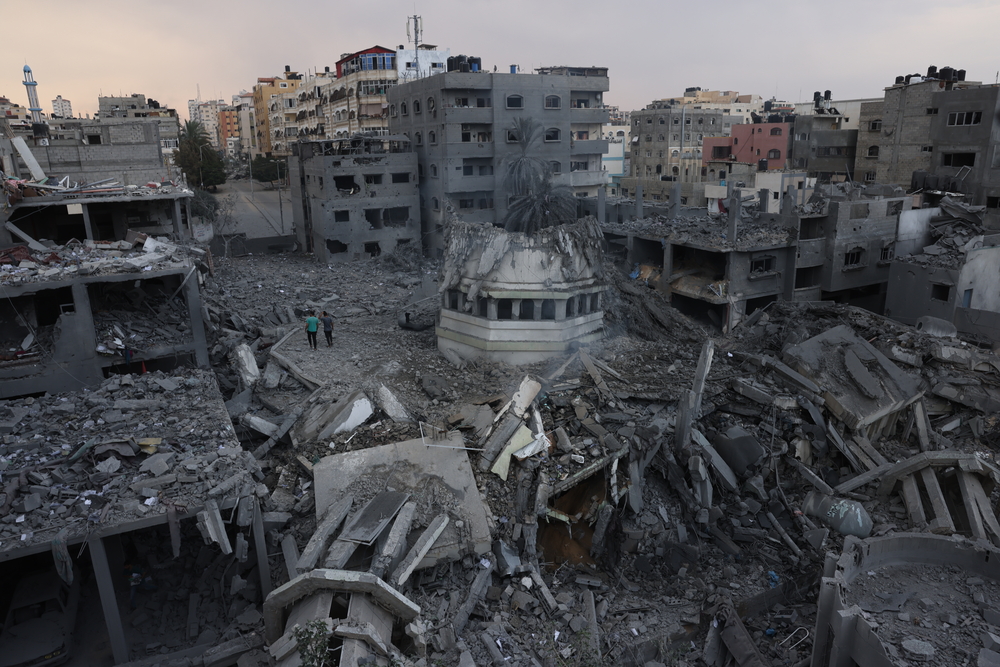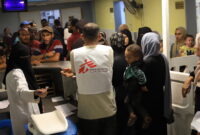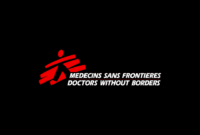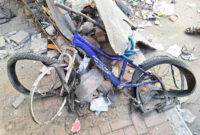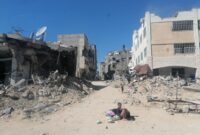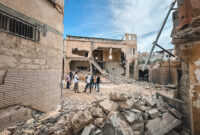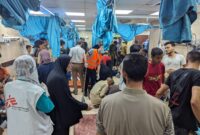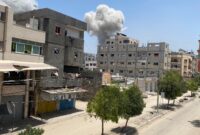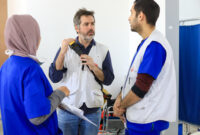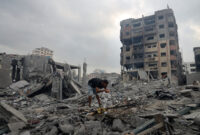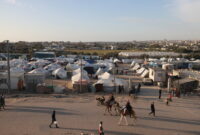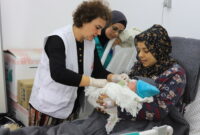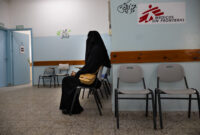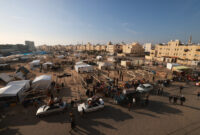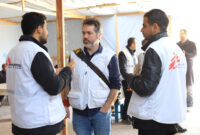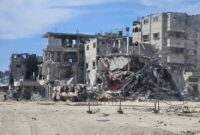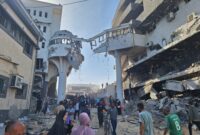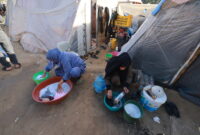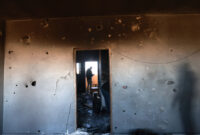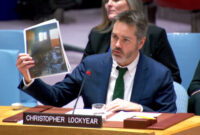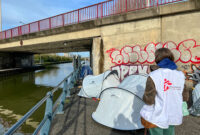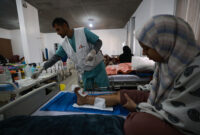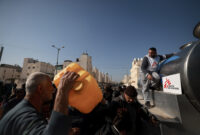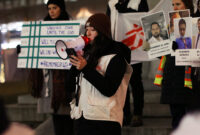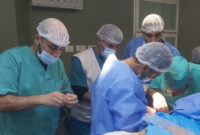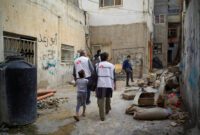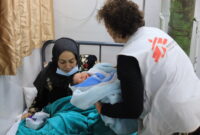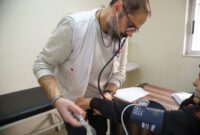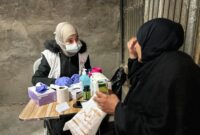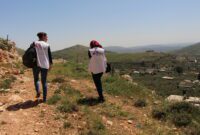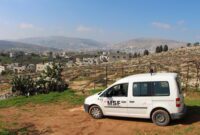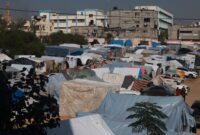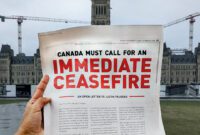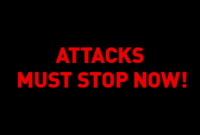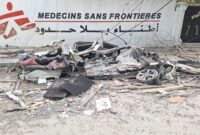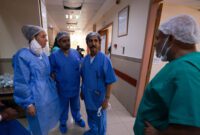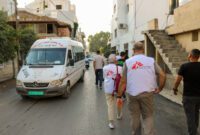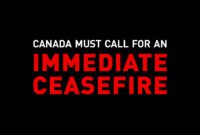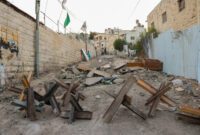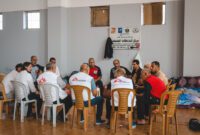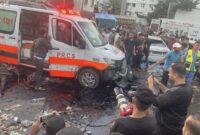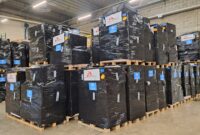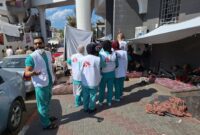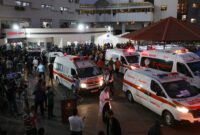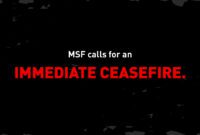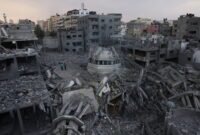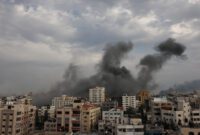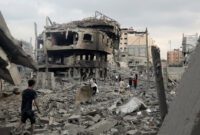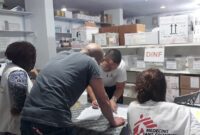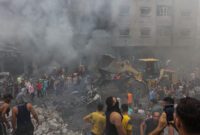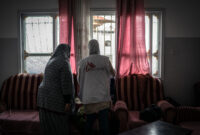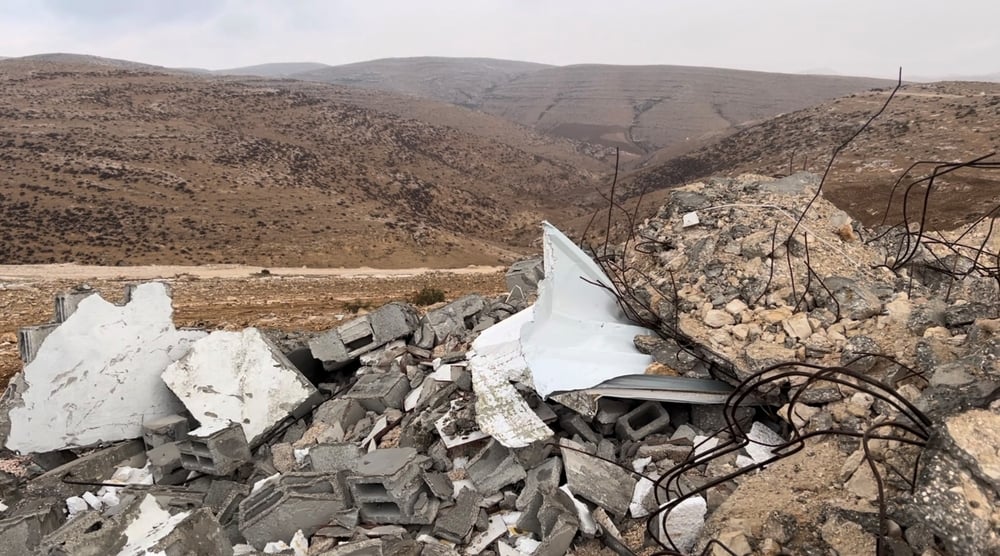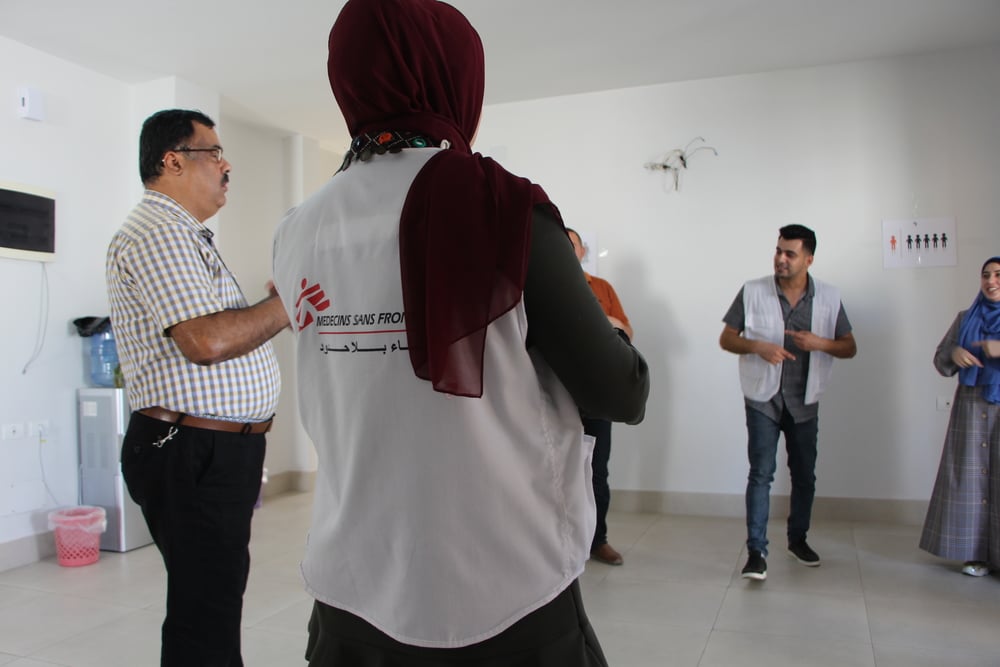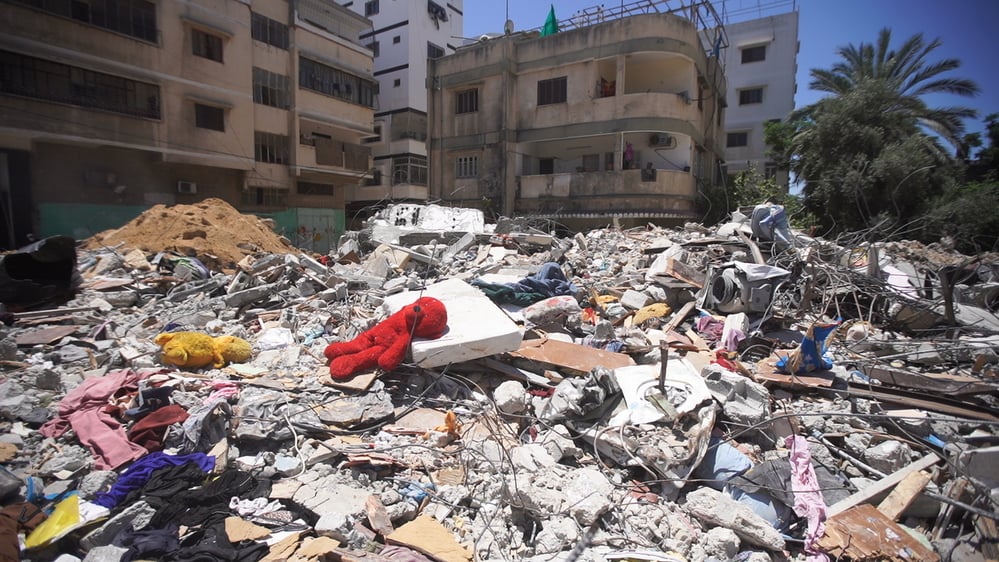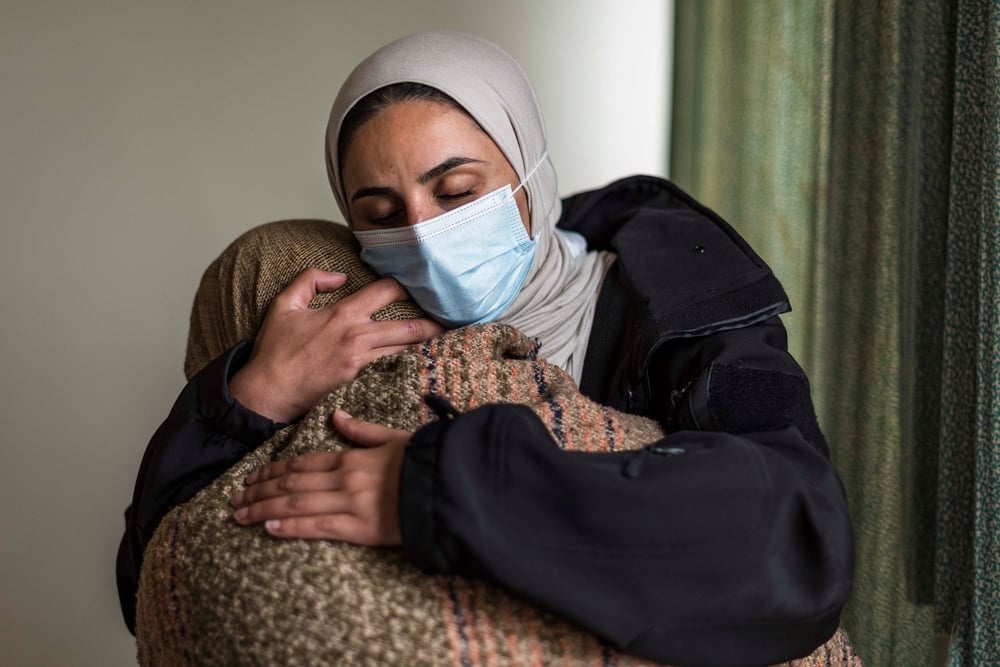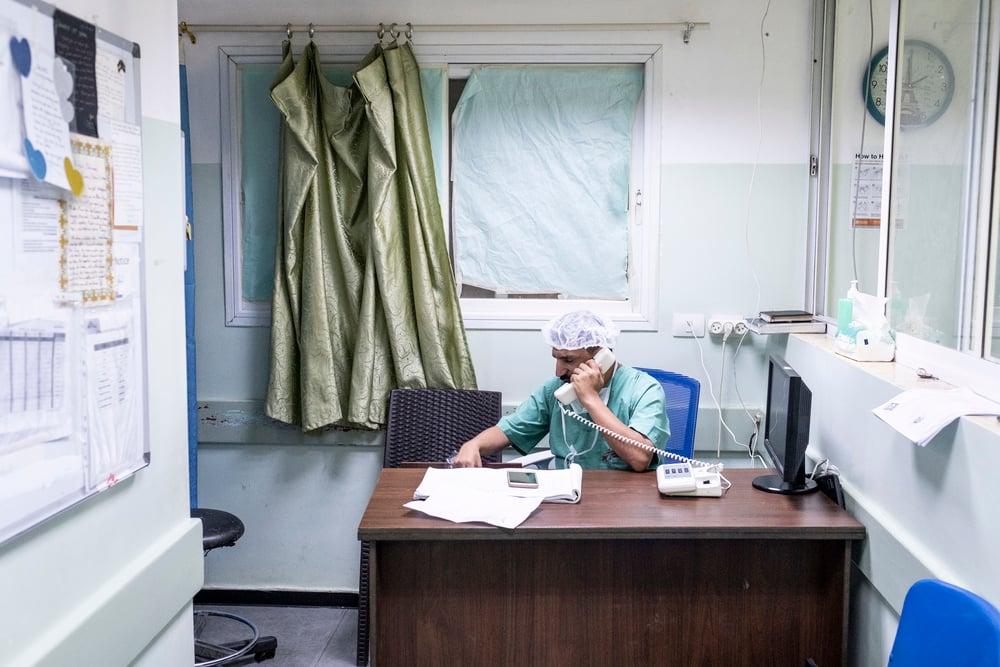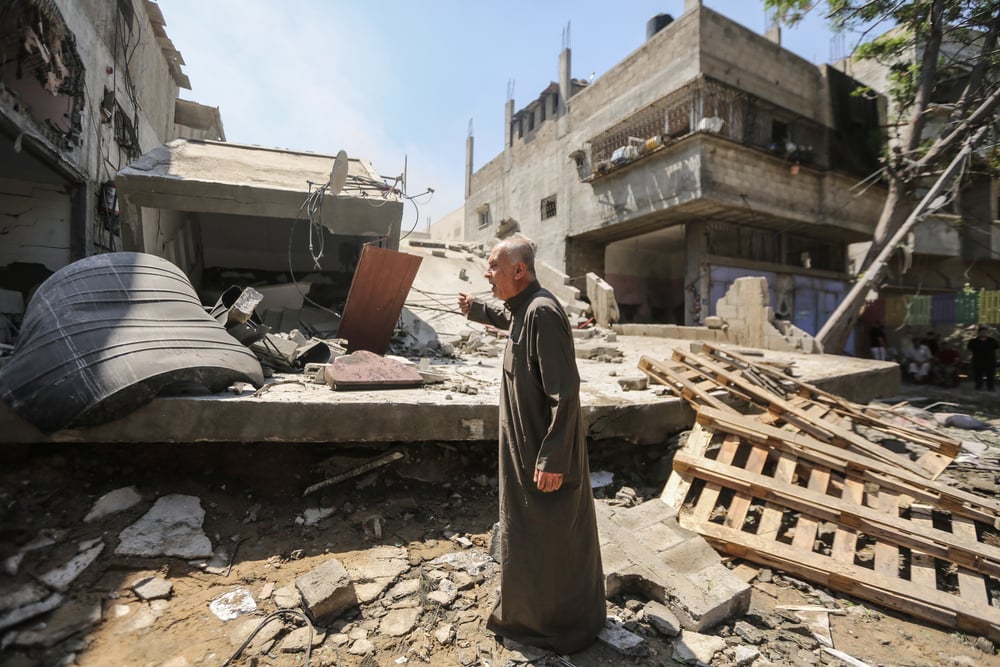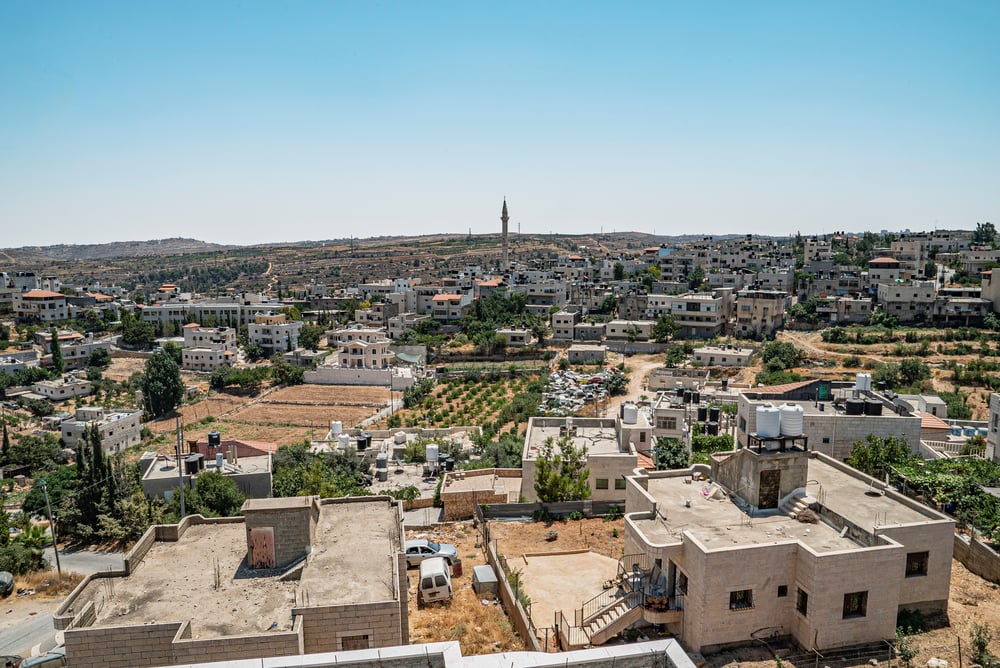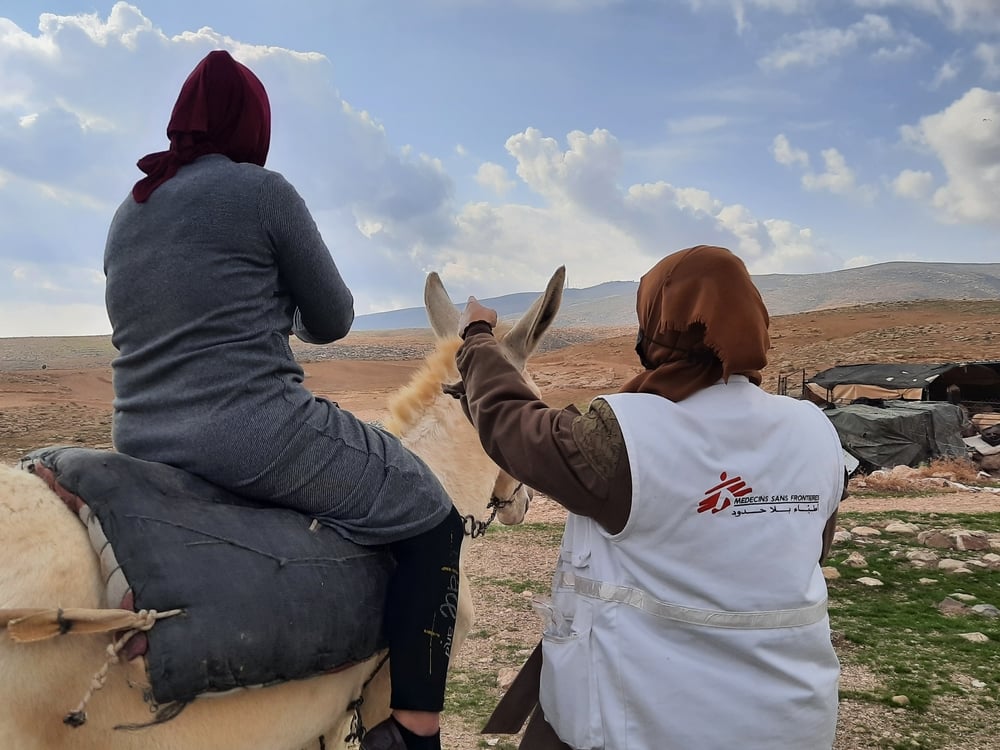MSF: Indiscriminate violence and the collective punishment of Gaza must cease
Doctors Without Borders/Médecins Sans Frontières (MSF) is horrified by the brutal mass killing of civilians perpetrated by Hamas, and by the massive attacks on Gaza now being pursued by Israel. MSF calls for an immediate cessation to the indiscriminate bloodshed, the establishment of safe spaces and safe passage for people to reach them as a matter of urgency. People must be afforded safe access to essential supplies like food and water and health facilities. Essential humanitarian supplies like medicine, medical equipment, food, fuel and water must also be allowed to enter the Gaza enclave. To facilitate this, Rafah border crossing with Egypt must be opened and bombings on the crossing point must cease.
Some 2.2 million people are currently trapped in the Gaza strip, where indiscriminate bombing has turned a chronic humanitarian crisis into a catastrophe. More than 300 MSF staff are in Gaza, some of whom have lost homes or family members; it has been near-impossible for them to move.
“The fighter jets are demolishing entire streets block by block. There is no place to hide, no time to rest. Some places are being bombed on consecutive nights. We know what it was like in 2014 and in 2021, thousands died. Each time our medical colleagues go to work, not knowing if they will see their homes or their families again. But they say this is different. This time, after five days, there have already been 1,200 deaths. What can people do? Where are they supposed to go?”
Matthias Kennes, MSF Head of Mission in Gaza
Millions of men, women and children are facing a collective punishment in the form of total siege, indiscriminate bombing, and the pending threat of a ground battle. Safe spaces must be established, humanitarian supplies must be allowed into Gaza. The wounded and sick must receive medical care. Medical facilities and personnel must be protected and respected; hospitals and ambulances are not targets.
The siege imposed by the Israeli government, including the withholding of food, water, fuel and electricity is unconscionable. Following 16 years of military blockade on the Gaza strip, the medical structures within are already weakened; this siege leaves no respite for patients caught up in the fighting, nor for medical staff. It represents an intentional block on life-saving items; the entry of these supplies and key medical staff must be facilitated urgently.
“In Ministry of Health hospitals, medical staff report that they are running out of anaesthetics and painkillers. On the MSF side, we moved medical supplies from our two-month emergency reserves to Al Awda hospital and now we have used three weeks’ worth of stock in three days.”
Darwin Diaz, MSF Medical Coordinator in Gaza
MSF staff including medical personnel have been extremely restricted in their movements since Saturday; they are unable to obtain safe passage to support Palestinian medical colleagues working day and night to treat the injured. Men women and children playing no role in the hostilities do not have a safe haven to go to. MSF teams are witnessing a level of destruction that may already exceed previous escalations. Two of the hospitals MSF supports, Al Awda and the Indonesian Hospital, have both sustained damage in airstrikes, while MSF’s own clinic sustained some damage in an explosion on Monday.
Today MSF is running an MSF standalone clinic, supporting Al Awda hospital, Nasser hospital, and the Indonesian hospital in Gaza. MSF reopened an operational theatre in Al-Shifa on 10 October to receive burn and trauma patients. We have also donated medical supplies to Al Shifa hospital and will continue providing support to hospitals. Our teams in Jenin, Hebron and Nablus are actively assessing the medical needs in the West Bank, as the violence is escalating. At least 27 Palestinians have been killed in settler attacks and clashes with the Israeli military.
Civilians, civilian infrastructure and healthcare facilities must be protected at all times. MSF calls on the Government of Israel to cease its campaign of collective punishment against the entirety of Gaza. Israel and Palestinian authorities and factions must establish safe spaces. The entry of humanitarian assistance, food, water, fuel, medicine and medical equipment to the Gaza strip must be facilitated urgently, failure to do so will cost more lives.
About MSF in Palestine
The information about our response, below, is correct as of Nov. 9, 2023.
MSF activities in Gaza are currently very limited. We have extreme difficulties delivering aid and providing healthcare due to the insecurity and the unpredictability of the bombardments. While some of our colleagues decided to move south following the unacceptable evacuation order of north Gaza, some of our other colleagues have remained in northern Gaza and continue to support in lifesaving activities in Al Shifa Hospital as well in Al Nasser hospital in the south. In Al Awda hospital, a team of seven MSF staff is also working in the MSF inpatient department.
We are also supporting local health authorities with donations from our medical stock. Due to the huge and uninterrupted influx of wounded people since the beginning of the current active conflict, Al Shifa Hospital, the main surgical facility in the Gaza strip, was on the brink of a complete shortage of essential medicines. In response, we recently were finally able to make a large donation of medical stock, including medicines and medical equipment to Al Shifa hospital.
Our staff are working hard on preparing medical and humanitarian supplies to be sent to Gaza when safe access will be guaranteed and open, and we’ll send in emergency teams if and when we’re able to.
MSF is committed to supporting the people affected by the Israeli heavy bombardments and indiscriminate attacks on Gaza. We stand in solidarity with healthcare workers and patients in Gaza. We want to be able to access people in need of medical care and offer lifesaving humanitarian services, but to do this we need basic guarantees of safety.
The West Bank
MSF’s medical and humanitarian activities in the West Bank have been affected by the escalation of violence and the reinforced movement restrictions that have limited people’s access to essential services, including healthcare. To adapt to the situation, MSF medical teams are providing phone consultations for Palestinian residents and displaced people, and referring patients for medical treatment, mental healthcare and social services. MSF mental health teams are also providing psychological first aid, counselling and psychotherapy, mostly remotely. In the West Bank city of Nablus, MSF teams are continuing to provide local people with mental healthcare.
MSF has donated medical supplies, including surgical kits, to Ahli hospital in Hebron, and first aid kits to community focal points in Beit Ummar, Al-Rashaydeh and to the emergency care centre in Um Al-Khair; and provided support including training for staff in Al Mohtaseb Hospital located in Hebron old city. MSF continues to assess the situation in hospitals across the West Bank.
